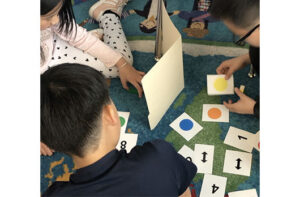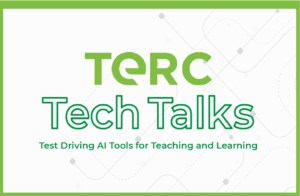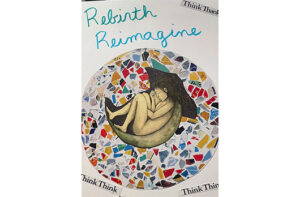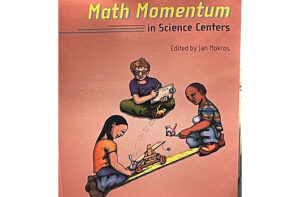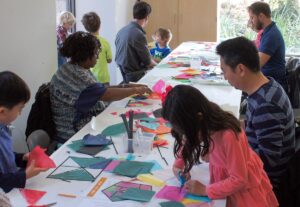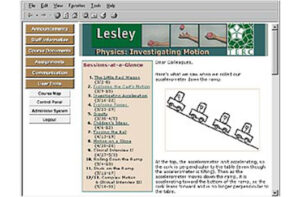Environmental Innovation Challenges
Teaching and learning science practices in the context of complex earth systems.
Lead Staff:
Gillian PuttickProject Staff:
Brian DraytonSantiago Gasca
Christina B. Silva
Renee Pawlowski
Current priorities in science education include efforts to engage students in scientific reasoning and using the knowledge and practices of science to understand natural phenomena and constructively respond to local and global challenges. This project responded to these priorities by engaging teams of students and teachers of grades 7-12 in four competitive Challenges to design innovative strategies for carbon mitigation in areas such as transportation, agriculture or energy use.
The project expanded the typical boundaries of schools by enabling teams of students in multiple locations to collaborate in model-based reasoning through online discussion forums, using social media, and crowdsourcing ideas to construct possible solutions to environmental challenges. Students and their teachers crossed disciplinary boundaries as they chose concepts from chemistry, engineering, mathematics, biology, and social science to support their innovations. Teachers, students, staff members, and advisors commented and provided guidance to the teams on a range of issues through crowdsourcing.
This early stage Design and Development study was guided by the hypothesis that competitive challenges supported by social media and crowdsourcing will engage a diverse array of students in sustained and meaningful scientific inquiry. Over a period of four years, the project designed and refined four Challenges that engaged approximately 1,000 students of ages 13-17.
Research ActivityProject research examined the impacts of the project on student learning and engagement. Research was guided by three overarching questions related to the design of the Challenges, the influence of school contextual factors, and student learning and self-efficacy. The questions were:
- How do features of the Challenge environment support the work of teams, and the participation of students from communities historically underserved in STEM?
- What structures within the school ecosystem support or raise obstacles to teamwork?
- Does participation in a Challenge result in the intended student outcomes: a) Learning of STEM concepts; b) Engagement in science and engineering practices; c) Persistence in completing a Challenge; and d) Self-efficacy in STEM.
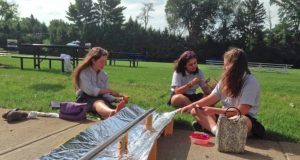
Design research was used to examine how features of the Challenge environment supported the work of teachers and teams, and implementation research focused on participant learning at the individual and team levels. Over 4 years, the project engaged at least 1,000 students in teams, and researchers tracked team activity during all phases of the Challenge process. A mixture of qualitative and quantitative analyses was used to examine outcomes, and data for girls and others from underserved populations was disaggregated for separate analyses.
ImpactThe Discovery Research preK-12 program (DRK-12) significantly enhanced the learning and teaching of science, technology, engineering and mathematics (STEM) by preK-12 students and teachers, through research and development of innovative resources, models and tools.
Current priorities in science education include efforts to engage students in scientific reasoning and using the knowledge and practices of science to understand natural phenomena and constructively respond to local and global challenges. This project responded to these priorities by engaging teams of students and teachers of grades 7-12 in four competitive Challenges to design innovative strategies for carbon mitigation in areas such as transportation, agriculture or energy use.
The project expanded the typical boundaries of schools by enabling teams of students in multiple locations to collaborate in model-based reasoning through online discussion forums, using social media, and crowdsourcing ideas to construct possible solutions to environmental challenges. Students and their teachers crossed disciplinary boundaries as they chose concepts from chemistry, engineering, mathematics, biology, and social science to support their innovations. Teachers, students, staff members, and advisors commented and provided guidance to the teams on a range of issues through crowdsourcing.
This early stage Design and Development study was guided by the hypothesis that competitive challenges supported by social media and crowdsourcing will engage a diverse array of students in sustained and meaningful scientific inquiry. Over a period of four years, the project designed and refined four Challenges that engaged approximately 1,000 students of ages 13-17.
Project research examined the impacts of the project on student learning and engagement. Research was guided by three overarching questions related to the design of the Challenges, the influence of school contextual factors, and student learning and self-efficacy. The questions were:
- How do features of the Challenge environment support the work of teams, and the participation of students from communities historically underserved in STEM?
- What structures within the school ecosystem support or raise obstacles to teamwork?
- Does participation in a Challenge result in the intended student outcomes: a) Learning of STEM concepts; b) Engagement in science and engineering practices; c) Persistence in completing a Challenge; and d) Self-efficacy in STEM.

Design research was used to examine how features of the Challenge environment supported the work of teachers and teams, and implementation research focused on participant learning at the individual and team levels. Over 4 years, the project engaged at least 1,000 students in teams, and researchers tracked team activity during all phases of the Challenge process. A mixture of qualitative and quantitative analyses was used to examine outcomes, and data for girls and others from underserved populations was disaggregated for separate analyses.
ImpactThe Discovery Research preK-12 program (DRK-12) significantly enhanced the learning and teaching of science, technology, engineering and mathematics (STEM) by preK-12 students and teachers, through research and development of innovative resources, models and tools.
The Discovery Research preK-12 program (DRK-12) significantly enhanced the learning and teaching of science, technology, engineering and mathematics (STEM) by preK-12 students and teachers, through research and development of innovative resources, models and tools.
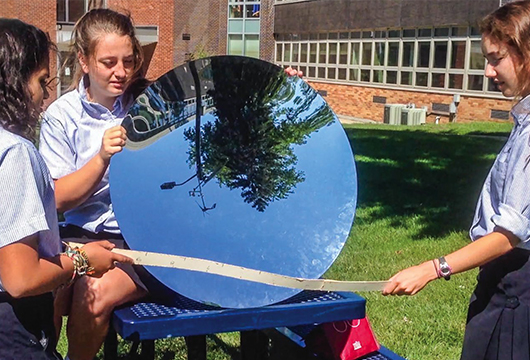
Funder:
U.S. National Science Foundation
Award Number:
1908117
8/2019 – 7/2023
Past ProjectThis project is no longer active. To see a list of current TERC projects, please click here.
Share This Page:

